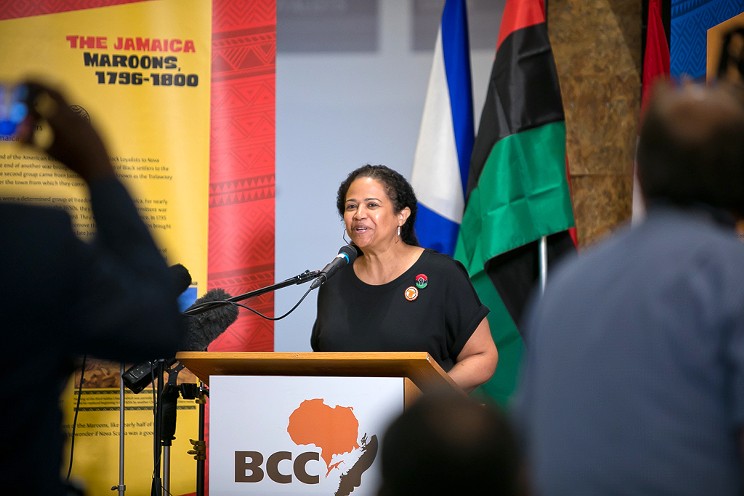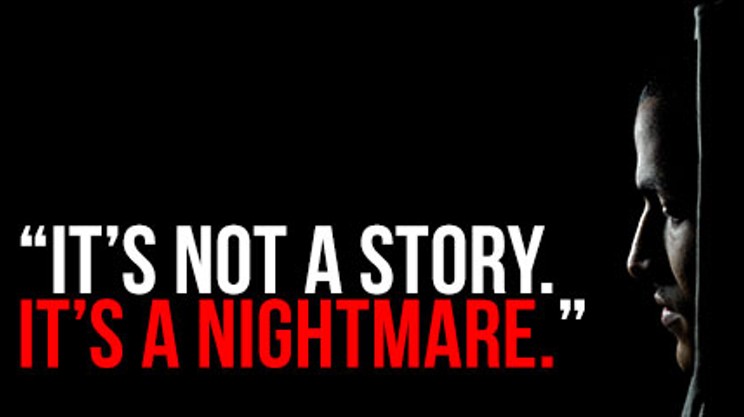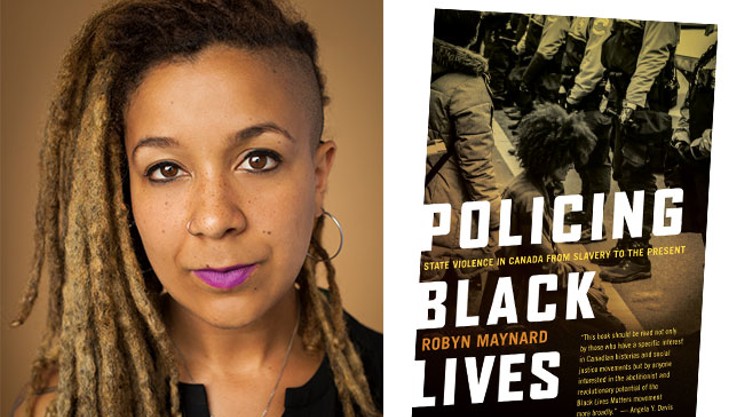This morning, the province announced that it will be investing $4.8 million in an African Nova Scotian Justice Institute, or ANSJI. The institute—the first of its kind in Atlantic Canada—will be run through the African Nova Scotian Decade for People of African Descent Coalition (ANSDPAD), and will address anti-Black racism in the criminal justice system.
Premier Iain Rankin and African Nova Scotian affairs minister Tony Ince were among the government representatives at the announcement, which took place at the Black Cultural Centre in Cherry Brook. Augy Jones, son of legendary Nova Scotia civil rights leaders Rocky and Joan Jones, and Dalhousie law school professor Michelle Williams also spoke at the event.
"The establishment of the ANSJI is the culmination of generations of work by African Nova Scotian people and communities,” said Williams, who’s also an executive at ANSDPAD. “We appreciate that the Nova Scotia government recognizes the institutional and systemic anti-Black racism faced by African Nova Scotians and their families when dealing with human rights, policing and corrections, and the justice system as a whole—and is willing to support African Nova Scotian-led work to address these issues."
Robert Seymour Wright, a social worker and ANSDPAD executive, explains that an institute like this one is a long time coming. Systemic racism has existed in Nova Scotia for as long as the province itself—finding ways to address the issue at every level of the criminal justice system is a natural and necessary step.
“People have been working on this issue for forever,” Wright says. “Several of us at the Decade for People of African Descent said, ‘let us formally propose to the government that they fund the Justice Institute, because we're being run off our feet responding to these justice requests, and we have no infrastructure or personnel to address it.”
One of the ANSJI’s goals is to help African Nova Scotians navigate their interactions with legal systems, operating as a resource for those in contact with the law. Wright says they’ll also be monitoring every step of the criminal justice system where an injustice might take place, from a Black person’s first interactions with a police officer to community reintegration programs for incarcerated people of African descent.
“Black folk have been compromised and marginalized every single step within their criminal justice path,” Wright says. The ANSJI is going to have several facets, including units dealing with race and cultural assessments and treatment services, an African Nova Scotian court support program and a community justice legal defence program.
And because the province has a fraught history when it comes to dealing with systemic racism and anti-Blackness in policing, the institute will have a data collection and police accountability unit, to address a concern that Black Haligonians have shared for years: a lack of transparency surrounding racial profiling by law enforcement officers. This issue gained traction in 2003, when the Human Rights Commission sided with Kirk Johnson in a discrimination case, agreeing that the Olympian boxer from North Preston had been racially profiled by the Halifax Regional Police Service. Since then, the issue has persisted: a landmark report found that 16.5 percent of street checks in the city between 2006 and 2017 involved Black males, despite them only making up 1.8 percent of the population during that time.





